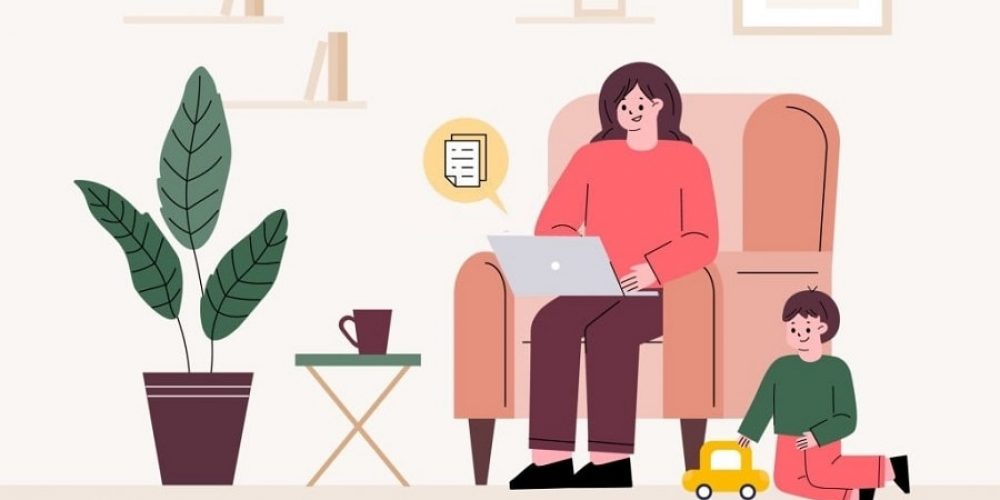Divorce can be a difficult and emotional process for all parties involved, but it can be especially challenging for parents who are trying to navigate child custody and visitation rights. Child custody and visitation are two separate issues that must be addressed during a divorce, and it is important for parents to understand the difference between the two. Child custody refers to the legal rights and responsibilities that parents have for the care and upbringing of their children. This includes decision-making authority for things like education, healthcare, and religion. Visitation, on the other hand, refers to the schedule and arrangements that are made for the non-custodial parent to spend time with the child or children.
It is crucial for parents to understand how child custody and visitation are determined, as it can have a significant impact on the child or children’s well-being and overall quality of life. It is also important for parents to understand the different types of custody such as legal, physical, and joint custody and how each type of custody can impact the child’s life. Furthermore, understanding the laws and guidelines that apply in your state, as well as the best interests of the child or children involved, is crucial in determining the appropriate custody and visitation arrangements for your family. An experienced Bellevue divorce lawyer can guide you through this process and advocate for the best interests of your child or children.
Child Custody
Child custody refers to the legal and physical care of a child. There are two types of child custody: legal custody and physical custody. Legal custody refers to the right to make important decisions about a child’s upbringing, such as education, healthcare, and religious upbringing. Physical custody refers to the actual physical care of a child, including where they will live and who will be responsible for their daily care.
Joint Custody
In many cases, parents are able to come to an agreement on joint custody, which means that they will share both legal and physical custody of their child. This means that they will make important decisions about their child’s upbringing together and that the child will spend time living with both parents.
Sole Custody
If parents are unable to agree on joint custody, one parent may be awarded sole custody. This means that only one parent will have the legal and physical care of the child. In some cases, the non-custodial parent may still be granted visitation rights, but they will not have any decision-making power when it comes to their child’s upbringing.
Visitation Rights
Visitation rights refer to the schedule for when a non-custodial parent will spend time with their child. Even if a parent is not awarded physical custody, they still have the right to spend time with their child and be involved in their life. Visitation schedules can vary depending on the specific circumstances of the case and can include weekend visits, holidays, and summer vacations. The courts will also consider the distance between the parent’s homes, the child’s age and development, the child’s relationship with each parent, and any other factors that may be relevant to the child’s best interest.
Additionally, it is important to understand that visitation rights can be modified in the future if necessary. If a parent’s circumstances change, such as a move, a change in work schedule, or a change in the child’s needs, they can request a modification of the visitation schedule. Furthermore, it is important to understand that the non-custodial parent also has the responsibility to support the child financially and emotionally.
They should be involved in the child’s life, attend school events, and communicate with the custodial parent regarding the child’s needs and welfare. Additionally, they should encourage the child to have a healthy and loving relationship with the custodial parent, as it is important for the child’s overall well-being.
Modifying Custody and Visitation
As children grow and circumstances change, parents may find that their custody and visitation agreement no longer works for them. In these cases, they can request a modification of the agreement. However, it is important to note that a modification can only be made if there has been a significant change in circumstances and if it is in the best interest of the child.
How an Experienced Bellevue Divorce Lawyer Can Help
Navigating child custody and visitation rights during a divorce can be complex and emotional. An experienced Bellevue divorce lawyer can help parents understand the legal process and work towards an agreement that is in the best interest of the child. A divorce lawyer can provide guidance and support throughout the process and advocate for the rights of the parents and the child.
Conclusion
In conclusion, child custody and visitation rights are important issues that need to be addressed during a divorce. It is important to understand the difference between the two and to know what options are available. An experienced divorce lawyer can help parents navigate the process and work towards an agreement that is in the best interest of the child.



Comments 0